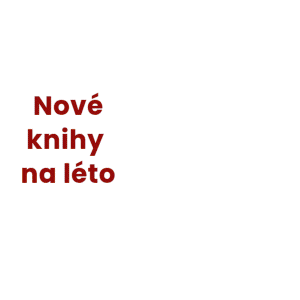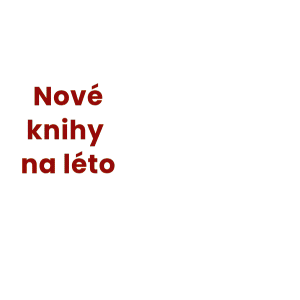WSAVA Activities and Committee Reports
Continuing Education
In a recent letter to WSAVA past-president Dr. Gabriel Varga, Dra. Adela Encinosa Linero, President, Scientific Veterinary Council of Cuba, extended "our eternal thankfulness" to the WSAVA for their support in organizing the second seminar of the Continuing Education Project.
The November 19-20, 2004 seminar featured Ellen Bjerkas DVM, PhD, Diplomate ECVO and was attended by more than 300 Cuban veterinarians representing four of the 15 Cuban provinces, including 15 students of the Havana Veterinary Faculty. Plans are already underway for a third seminar to be held in 2005 with the intent to incorporate veterinarians from the majority of Cuba's 15 provinces.
NEWS From Around the World
Canada
The National Companion Animal Coalition (NCAC), comprised of the Canadian Veterinary Medical Association (CVMA), the Canadian Federation of Humane Societies (CFHS), the Canadian Kennel Club, and the Pet Industry Joint Advisory Council, with participation from Agriculture & Agri-food Canada, announced that effective December 1, 2004, NCAC has adopted a new standard for electronic identification of companion animals based on the ISO standards (11784 and 11785). This follows earlier announcements by both the CVMA and the CFHS of their support for ISO microchip technology and replaces the previous Canadian User-Based Standard that was based on the old FECAVA standard. As part of the NCAC announcement, August 1, 2005, becomes the date when only microchips adhering to the ISO standards will be recognized by the NCAC as suitable for companion animal identification in Canada, including registration within supportive databases. While the NCAC has no regulatory authority to mandate adherence to their stated position, they will support those manufacturers/distributors that comply through a voluntary review process that evaluates available microchip technology with respect to three categories - the microchip, the reader, and the supportive database. Those companies in compliance will be recognized by the NCAC as providing product/service compatible with their stated position and hence, in keeping with their long-term vision of ensuring that Canadian microchip technology is compatible, regardless of manufacturer, and supported with appropriate backward/forward compatible readers and a robust database that is available for pet recovery regardless of any eventuality.
Middle East
As recently reported in the Journal of the American Veterinary Medical Association, the International Veterinary Conference was held in Kuwait City on September 21-23, 2004, bringing together 54 representatives of organized veterinary medicine from the United States, Afghanistan, Iraq, and Kuwait that included the AVMA, the Association of American Veterinary Colleges, the US Department of Agriculture, the US military, as well as high-ranking representatives of Kuwaiti, Afghan, and Iraqi veterinary schools, governments, and veterinary and agricultural organizations. The goal of the meeting was to establish a network for ongoing dialogue and to discuss ways that the United States veterinary profession can aid in redevelopment of veterinary medicine in Iraq and Afghanistan. The focus was on developing viable, collaborative solutions to repair/rebuild the veterinary infrastructure in Afghanistan and Iraq, which is in a state of disrepair.
United Sates
The Animal Poison Control Centre of the American Society for Prevention of Cruelty to Animals recently provided a poison alert cautioning animal owners that xylitol, a sweetener found in certain sugar-free chewing gums, candies, and other products such as baking goods, can result in significant signs of toxicosis that may prove to be life-threatening for animals, particularly dogs. In dogs, clinical hypoglycemia due to the rapid release of insulin secondary to xylitol ingestion can result in neurological signs consisting of weakness, ataxia, mental depression, seizures, and coma. Pet owners of animals exhibiting these signs and having confirmed hypoglycemia should be questioned as to potential ingestion of xylitol containing products. For more information, visit the ASPCA Animal Poison Control Center.
WSAVA/FIAVAC/AMMVEPE 2005 Congress Update
As part of the 252 lectures from 110 different speakers that form the foundation for the upcoming Mexico City World Congress, there will be four State-Of-The-Art lectures, designated with the acronym 'SOTAL' in the congress program. As their name implies, these lectures are designed to provide the attendee with the most recent information on current topics of clinical interest from world-renowned leaders in the specific disciplines involved. This year's lecturers and topics are:
• Dr. Johann Lang/Suiza - New developments in GI imaging - Wednesday, May 11 from 18:30-19:30
• Dr. J. Dubey Berger - Canine neosporosis - Thursday, May 12 from 11:30-12:20
• Dr. Chand Khanna - New developments with molecular markers in canine cancer - Thursday, May 12 from 15:30-16:20
• Dr. Cecile Clercx - Pathogenesis and treatment of canine bronchopneumonia - Friday, May 13 from 15:30-16:20
SOTALs are only one part of a continuing education event that promises to not only educate, but provide a wonderful venue to renew old acquaintances and make new ones as well. So, visit the Mexico City Congress website and register online today.
Request for Assistance
From Nigeria comes this request for assistance: should individual veterinarians, or veterinary associations, schools, or libraries be updating their reference volumes, please consider sending any veterinary textbooks that are being replaced to the University of Nigeria as their educationally disadvantaged community would be delighted to receive the materials. Please address any correspondence in this regard to:
Dr. Aminu Shittu
Faculty of Veterinary Medicine
Usmanu Danfodiyo University
P.M.B. 2254
Sokoto-Nigeria
e-mail: ameen_vet@yahoo.com



